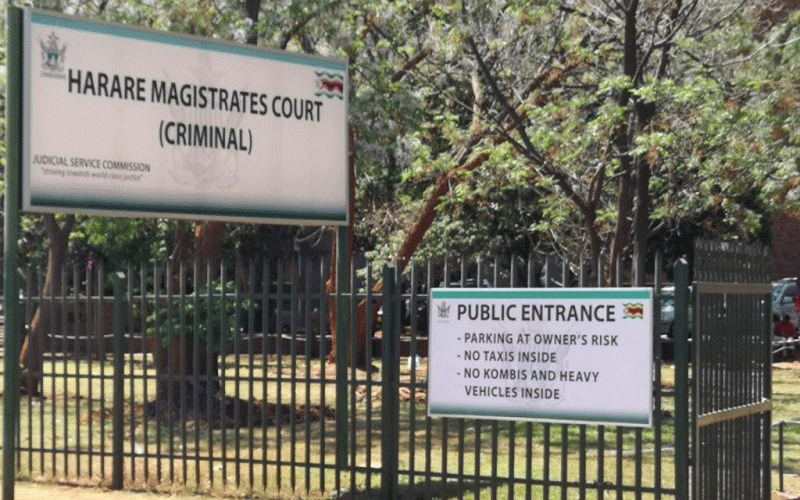
The government’s claims that its much-touted command agriculture is funded by a private company are false and the programme could sink Zimbabwe into bankruptcy, this paper reveals today.
BY EVERSON MUSHAVA

Vice-President Emmerson Mnangagwa has been championing the controversial programme, which the government says is meant to boost food security, but the sensational revelations will add weight to claims that it is another feeding trough for the Zanu PF elite.
According to confidential Finance ministry documents obtained by The Standard, Sakunda Holdings, the purported financier of the programme that was said to be worth $500 million breached its agreement with the government.
The ministry’s public debt management office raised the red flag in an advisory note titled “Sakunda Facilities”, which is in our possession, amid indications that the energy firm had already traded all the issued treasury bills (TBs) in violation of their non-tradability features.
The advisory note was penned at a time when claims had been flying around that the programme was used to line the pockets of individuals linked to the ruling party.
The loan is being repaid through the Noczim Redemption Fund and Treasury which means the government is actually funding the programme.
“In the implementation of the facility, there is potential conflict of interest, lack of checks and balances and no competitive bidding, which is against good corporate governance and in violation of State Procurement Board regulations,” the advisory note reads.
- Chamisa under fire over US$120K donation
- Mavhunga puts DeMbare into Chibuku quarterfinals
- Pension funds bet on Cabora Bassa oilfields
- Councils defy govt fire tender directive
Keep Reading
“For example, the financier is responsible for procurement of all inputs and there is a huge risk of overpricing.”
Despite claims by the state media that the programme was a runaway success, the government department advised that “there is need for proper verification of hectarage to be planted in order to avoid over commitment which would result in extra costs to government from the committed funds.”
However, the more damning revelation was that Sakunda had allegedly breached terms of the agreement, exposing government to massive and raising the spectre of looting.
“Sakunda have traded all the issued TBs in breach of the non-tradability features on the TBs,” the advisory note added.
“In other words, the trading of TBs by Sakunda plus the repayments of the loan through both the Noczim Debt Redemption Fund and the budget is tantamount to government funding the whole programme albeit, at a very high cost.
“Government should have traded its TBs directly to the market without involving third parties.”
Command agriculture or Special Maize Programme was set up at the start of the 2016/17 cropping season after the government signed two agreements with Sakunda.
The agreements should have seen the energy firm pouring $85 million into the maize cropping programme on irrigated land and another $75 million on non-irrigated land. A taskforce supervised by Mnangagwa and comprising of mainly military personnel spearheaded the project, relegating the Agriculture ministry to the periphery.
According to the public debt management office’s advisory note, the agreements with Sakunda specified a capitalisation of interest up front, then an additional coupon rate of 5%.
The interest rate on the facility was pegged at 15%, but the office says it must be negotiated downwards in line with the 2017 monetary policy statement.
The document added that the agreement assumed a “bullet disbursement.”
“However, disbursements are being staggered and therefore government is paying interest on undisbursed funds,” the office warned.
“Government should either issue a TB or contract a loan, instead of duplicating the two instruments concurrently.
“The agreement does not have a schedule of actual inputs and their respective prices, making it difficult to assess the magnitude and cost of the facility.
“Government should have either issued a TB or contract a loan, instead of duplicating the two instruments.”
The government said Sakunda delayed the procurement and disbursement of inputs, thereby reducing the yields.
“This resulted in some suppliers suspending deliveries of inputs,” the document added.
There was also lack of monitoring and evaluation mechanisms on the utilisation of the facilities, according to the document.
The facilities included inputs and administration costs such as vehicles and motorbikes, which had been earmarked for the farmers.
Farmers also did not sign stop order facilities with the Grain Marketing Board, making it difficult to recover the cost of the inputs from the beneficiaries of the facility and making it impossible for government to recoup the costs.
“Government is exempting Sakunda inputs procured from taxation, yet there is no corresponding reduction of the input prices charged on farmers,” the document added.
“There are no risk mitigating measures in case the farmers fail to pay due to unfavourable weather conditions, unwillingness to pay and any reason, including natural disasters, and in the case Sakunda fails to deliver inputs on time.”
The government has already embarked on a “command wheat programme” and is planning command livestock, command irrigation, command fisheries and command horticulture programmes.
A government official said there was growing frustration in the Finance ministry that the programmes would take the country back to the 2008 era where quasi fiscal activities by the Reserve Bank of Zimbabwe (RBZ) left the economy on the brink.
“There is growing frustration in the Ministry of Finance that the financial rot of 2008 has come back again,” the official who requested anonymity said.
“Whereas, then the rot was driven by and from the RBZ corrupt quantitative easing, now its driven by and from corrupt issuance of TBs by the Ministry of Finance.
“If the authorities do not intervene as a matter of urgency, then God help Zimbabwe because Armageddon is coming.”
Higher and Tertiary Education minister Jonathan Moyo has on a number of occasions clashed with Mnangagwa over command agriculture, with the Zanu PF politburo member claiming that the programme is a looting scheme.
Last week, the minister lampooned the programme, referring to it as Mnangagwa’s ugly culture.










